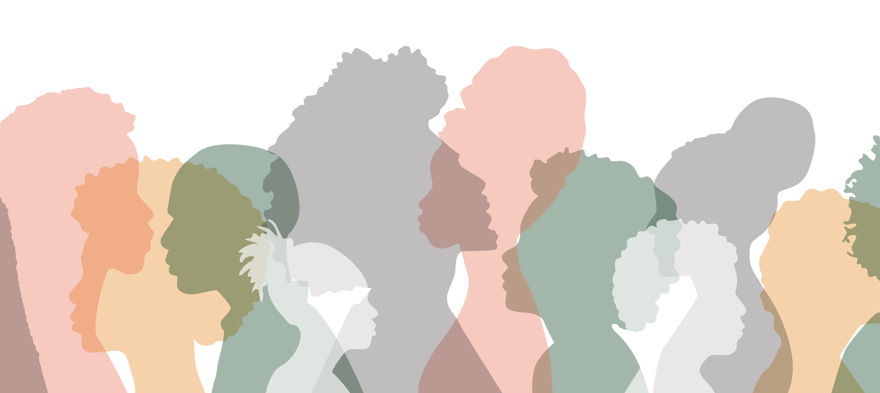
Feb 26, 2022 12:00:00 AM
Like many of my students, I look forward to Black History Month in February, when schools and organizations across the country celebrate and honor the contributions of Black Americans and others of African descent. In my 21 years as an educator in one of the largest urban districts in Pennsylvania, which serves a predominantly Black student population, I have enjoyed door-decorating contests creatively displaying the greatness of Black lives, inspiring Black History programs, and wax museums with students dressed up as their favorite African American leaders. These activities are exciting for students of every race, and my Black and brown students feel affirmed and proud during the month of February. But what happens when February ends?
I remember vividly a moment five years ago, as I walked back to my classroom from dismissal on the first of March. One of my white colleagues, who taught across the hall, was ripping down Dr. King’s image and replacing him with a leprechaun. At that moment, I realized that my colleague’s students will not continue to learn about Black history and contributions beyond February. [pullquote]While I knew that my students would continue this learning year-round, my heart grew heavy for the other Black and brown students who may not have these experiences.[/pullquote]
This was not an isolated incident. Throughout my career, and even during my own schooling, I have experienced a lack of representation of Black leaders on the walls, in the curriculum, and among the staff. As a Black female, I never realized how this impacted me until I became an adult. As I began to grow in my own racial identity and consciousness, I realized what the lack of representation of people who look like me did to my own psyche and social-emotional well-being. Without examples of Black excellence all year long, I was left with a sense of worthlessness and felt less valued. Unconsciously, I’ve always struggled with the need to speak, be, and dress in a way that was more aligned with the dominant culture. I still struggle with this today.
I can’t help but imagine how this could have been different if I had understood as a child how Black Americans shaped this country, and how Black history did not begin with enslavement. What if I had learned the truth about why the institution of slavery was formed in the first place? What if I had learned more about Black leaders, and what if that learning included not only an oversimplified version of Dr. Martin Luther King but the contributions of others such as Ida B. Wells, Madam C.J. Walker, Angela Davis, and Ella Baker? [pullquote]What if Black History Month was just the beginning of this learning, and we continued to discover the power and richness of Blacks in America and from around the world?[/pullquote] I believe that I would have more of a sense of pride, confidence, and liberation in not just my own self, and positive racial identity, but also in how I view other people of color. And if all students—of all races—had these same experiences, maybe we wouldn’t see racial achievement gaps like we currently do in schools? Maybe then we wouldn’t need slogans like “Black Lives Matter” to remind the world of our value.
[pullquote position="right"]How can we reach a point where Black and brown students feel seen and affirmed in schools not just during Black History Month but all year long?[/pullquote] It is imperative that teachers are trained to become culturally competent and critically conscious practitioners who learn how to support students in developing a positive racial identity. In my district, I facilitate a two-day foundational equity course, required for all teachers, that provides tools for educators to engage in conversations about race. Most participants find this training transformative, and many say they never received training like this in their teacher preparation programs.
Education schools in Pennsylvania and nationwide must provide multiple opportunities for teacher candidates to examine their values, beliefs, and ideologies, to strengthen their critical consciousness, and to develop culturally relevant pedagogy. State departments of education should set standards and regulations to ensure that cultural relevancy training is an integral part of all educator preparation programs. If not, we will continue to marginalize and traumatize our most vulnerable students.
Public education was never intended to serve people of color well. While our societal and educational outcomes demonstrate that our school system is still systematically inequitable, we can make changes in both educational policy and instructional practice to reimagine public schooling so that all can succeed, including those who have been historically marginalized.
Dr. Rhonda Threet is a Learning Environment Specialist with the Pittsburgh Public School District and a 2021-2022 Teach Plus Pennsylvania Policy Fellow.
Few issues in education spark more tension and debate than standardized testing. Are they a tool for equity or a burden on students? A necessary check on school systems or a flawed measure of...
Charter schools are public schools with a purpose. Operating independently from traditional school districts, they're tuition-free, open to all students, and publicly funded—but with more flexibility...
Despite the benefits of a diverse teaching force, prospective teachers of color fall out of our leaky preparation pipeline at every stage: preparation, hiring, induction, and retention. Here’s what...
Ed Post is the flagship website platform of brightbeam, a 501(c3) network of education activists and influencers demanding a better education and a brighter future for every child.
© 2020-2025 brightbeam. All rights reserved.
Leave a Comment